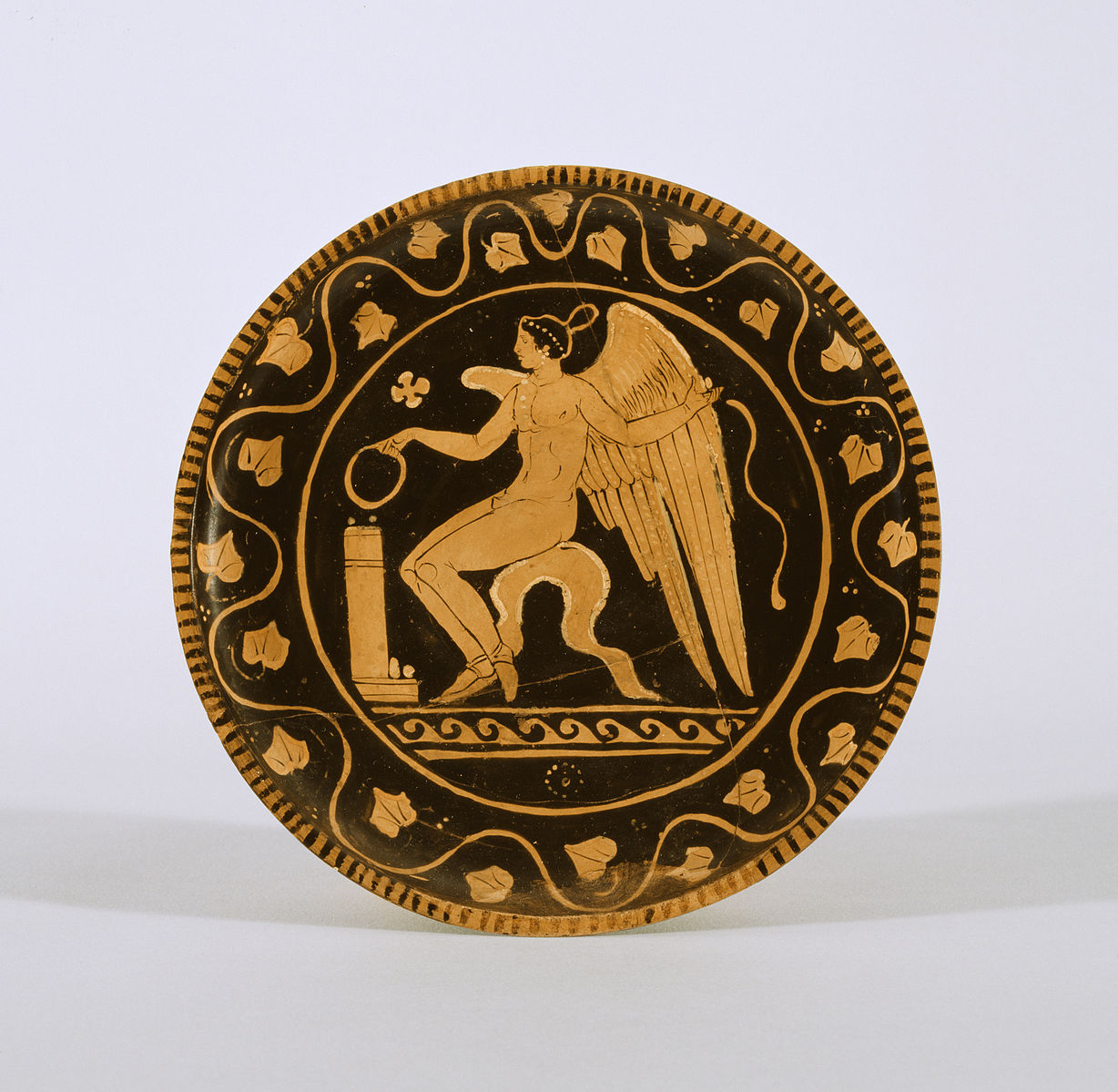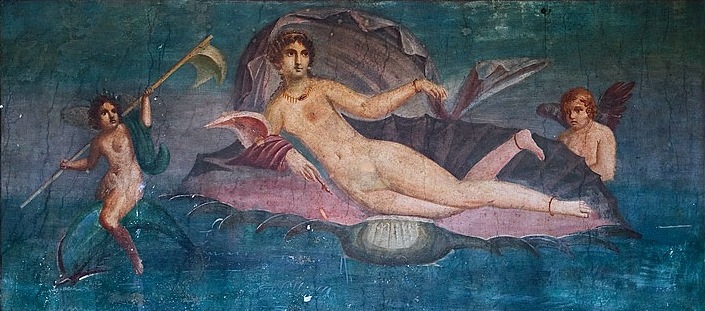
Eros (Apulia, 340-320 BCE)
Creative Projects?
Response #2 Topics (optional rough draft due March 15; response due March 22)


Eros (Apulia, 340-320 BCE)
Creative Projects?
Response #2 Topics (optional rough draft due March 15; response due March 22)

Publius Ovidius Naso (Ovid): 43 BCE-17 CE, from Sulmo, Italy; studies in Rome & Athens; abandons civil/legal career and joins circle of Messala; 8 CE exile to Tomis (Constanța, Romania) by Augustus for carmen ("poem") and error ("an indiscretion")

Amores 2.7 (Corinna's fearful jealousy – lover's defense)
. . . Behold a new crime! With that clever dresser Cypassis,
I’m reproached for defiling the bed of our mistress.
Think better of me than that, if I wronged you in passion,
than to take joy in a common girl with a contemptible fate!
What free man would want to take up with a slave,
and embrace the scars on her whipped back?
Added to which she takes pains to dress your hair,
and a well-taught servant is dear to you –
Of course, I’d beg it of a maid so faithful to you!
Amores 2.8 (demands payment for defending himself & Cypassis to Corinna)
. . . For my service to you repay me, with a sweet reward,
and sleep with me today, dark Cypassis!
Why, ungrateful girl do you refuse, and find new fears?
Only one of us is satisfied with your service.
If you say no, foolish girl, I’ll say what we’ve done before,
and become the betrayer of my own crime,
and the place where we were, and how often, Cypassis:
I’ll tell your mistress how many times, and in what ways!
Cupids playing a lyre (Herculaneum, 1st century CE)

Amores 1.2 (enslavement to Cupid himself)
. . . That’s it: a slender arrow sticks fast in my heart,
and cruel Love lives there, in my conquered breast.
Shall I give in: to go down fighting might bank the fires?
I give in! The burden that’s carried with grace is lighter.
I’ve seen the torch that’s swung about grow brighter
and the still one, on the contrary, quenched.
The oxen that shirk when first seized for the yoke
get more lashes than those that are used to the plough.
The hot steed’s mouth is bruised from the harsh curb,
the one that’s been in harness, feels reins less.
Love oppresses reluctant lovers more harshly and insolently
than those who acknowledge they’ll bear his slavery. [servitium amoris]
Look I confess! Cupid, I’m your latest prize:
stretching out conquered arms towards your justice.
War’s not the thing – I come seeking peace:
no glory for you in conquering unarmed men.
Wreathe your hair with myrtle, yoke your mother’s doves:
Your stepfather Mars himself will lend you a chariot,
and it’s fitting you go, the people acclaiming your triumph, [Cupid as triumphator]
with you skilfully handling the yoked birds.
leading captive youths and captive girls:
that procession will be a magnificent triumph.
I myself, fresh prize, will just now have received my wound
and my captive mind will display its new chains.
You’ll lead Conscience, hands twisted behind her back, [Mens Bona]
and Shame, and whoever Love’s sect includes. [Pudor]
All will fear you: stretching their arms towards you
the crowd will cry ‘hurrah for the triumph!
You’ll have your flattering followers Delusion and Passion, [Error, Furor]
the continual crew that follows at your side.
With these troops you overcome men and gods:
take away their advantage and you’re naked.
Proudly, your mother will applaud your triumph
from high Olympus, and scatter roses over your head
You, with jewelled wings, jewels spangling your hair,
will ride in a golden chariot, yourself all golden . . .
. . . Look at Caesar’s similar fortunes of war – [cf. Augustus' triple triumph, 29 BCE; moral legislation]
what he conquers, he protects with his power. [cf. clementia]
Bronze doors of the Pantheon
. . . Now once I was scared of the night and vain phantoms:
I was amazed at anyone who went out in the dark.
Cupid laughed, so I heard, and his tender mother,
and said lightly, ‘You too can become brave.’
Without delay, love came – I don’t fear clutching hands
in my fate, or the flitting shadows of night.
You, so slow, you I fear: you’re the one to flatter:
you keep the bolt that can finish me off.
Look – you can see, then, undo the lock –
the doorway’s wet with my tears!
Surely, when you stood quivering, stripped for flogging,
I spoke words to your mistress on your behalf.
So isn’t the favour that you once valued – oh what a crime!
- not worth something of equal value to me, now?
Repay the service in kind! You’ll easily get what you want.
The night is passing: throw open the door!
Open! Then, I say, you’ll be eased of your long bondage,
and you won’t drink slave’s water for ever! [cf. quid pro quo of Roman prayer (do ut des)]
Like iron you listen uselessly to my prayers, doorkeeper,
the door’s barred solidly with tough wood . . .
. . . I was alone till cruel Love arrived.
I couldn’t dismiss him even if I wanted:
I’d first have to separate myself from my limbs . . . [split self - body/mind, enslaved/unenslaved]
. . . Perhaps a little friend stays with you now –
alas, your fate is better than mine!
As long as it’s so, pass your harsh chains to me!
The night is passing: throw open the door! [refrain/magical chant (temporis noctis eunt; excute poste seram)]
Woman selling Cupids (Villa di Arianna, Stabiae, 1st century BCE)
Fuseli, Cupid Seller (chalk drawing, 1775)